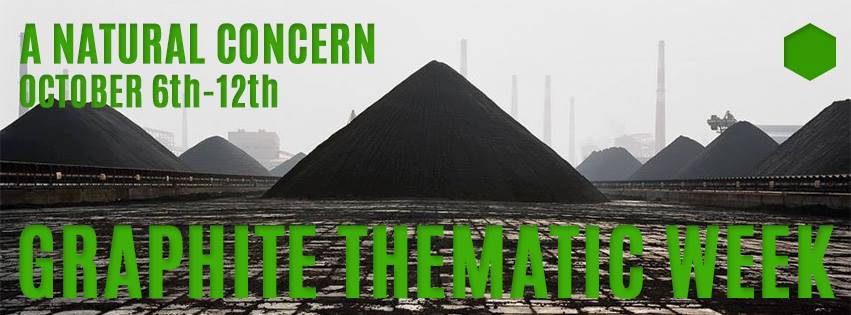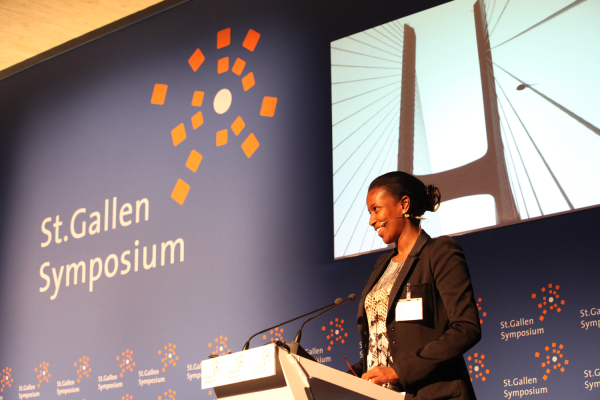Survival is intrinsic to life. It is this struggle onward that we humans know so well.
But equally substantial is the prospect of extinction; the cessation of existence.
Over the past 40 years, human activities have resulted in the elimination of half of all remaining species in the wild. But our destruction does not end there, according to the WWF, some 46-58 thousand square miles of forest are lost each year—equivalent to 36 football fields every minute; the conversion of forests to other land uses including agriculture and industry is responsible for around 10% of net global carbon emissions. While we are quite attuned to our own tribulations, we are quite immune to those of the other living things around us: from bacteria to animals, to the entity known as the Earth.
Have we desensitized ourselves to the needs of others in order to indulge in self-interest?
The notion of survival is contingent on other aspects of our human livelihoods: our life-supporting resource stocks (renewable and nonrenewable) and our institutions (including behavior). Our way of life and doing emerge from our way of conceptualizing and being: how we weigh costs and benefits, how we value extrinsic resources and certain behavior; these mental processes are circumscribed onto our landscapes by way of our actualization in day-to-day activities. Whether a man works, plays, or sleeps, he has an effect on the quality of the entirety of the social and ecological systems around him. Everyday choices have vast implications-especially at the current human scale. One main contestation of the Anthropocene is that humans as a species have become an extraordinarily strong force in shaping the natural processes which govern the systems of the Earth. Homo sapiens have been a long-time keystone species in their environments, but the extent of their impact is beginning to reach what only decades ago were unfathomable extents.
The term ‘ecological footprint’ is useful to conceptualize the aggregate extent of everyday behavior. This measurement is increasingly employed, for instance as a component in the Living Planet Report by the WWF, and has been subsequently adopted by the UN.
The graphic for reference demonstrates that most of our demands originate in agriculture or industry, and that even those most economically or socially ‘advanced’ countries still have much progress to make in terms of reducing their impact. The report concludes that, “today’s average global rate of consumption would need 1.5 planet Earths to sustain it. But four planets would be required to sustain US levels of consumption, or 2.5 Earths to match UK consumption levels.”
We know the difference between finite and infinite. Yet we seem to be acting as though our finite pool of resources is infinite, capable of feeding the insatiable demands of a consumer-culture fixated on economic growth and progress; on self-interest, greed, and envy. A curtailment of that demand, which causes disproportionate stress on the environment, is necessary immediately. To do this, ingrained assumptions of what it is to be ‘efficient’ or ‘economic,’ must be assessed; the scalar dimensions of our activities, i.e. the international supply (and demand) chain, require reorganization. As E. F. Schumacher so brilliantly stated in Small is Beautiful, “If we squander our fossil fuels, we threaten civilization; but if we squander the capital represented by living nature around us, we threaten life itself.” Our livelihoods must be compatible with life on earth; to this end Schumacher suggests a lifestyle oriented toward permanence rather than ‘sustainability’ or ‘progress.’
We cannot let our drive to become civilized masters of nature and commanders of science and logic deny ourselves of certain realities such as that of our place within the ecosystem, or in greater generality, the natural processes and systems of life. We are walking a line between ‘survival’ and ‘extinction.’ To resolve this, we must turn to the growing tension between our economic system and the status of our natural habitat. So long as economics is a guiding force in the livelihoods of mankind, it must show itself to be an ultimately ethical practice: avoiding violent exploitation, limiting the pursuit and attachment to wealth. For, under the current order of capitalism, the balancing system of nature is becoming increasingly unbalanced and mankind as whole, dangerously apathetic.
As globalization brings people from around the world crashing together, a new period is upon us for recreating our way of life. Addressing climate change is not an issue solely for scientists to tackle; the environment is not solely the domain of ‘environmentalists.’ In a recent article for Project Syndicate, Martina Larkin, head of the World Economic Forum’s Network of Global Agenda Councils, suggests utilizing the growing interdependence between governments and peoples globally, to ultimately harness a “critical mass of insight” with which to solve approaching global predicaments. Larkin suggests that a way toward this insight is the active involvement of stakeholders from across the spectrum, all those who will feel the effects of international issues such as carbon dioxide increase due to emissions and destruction of carbon sinks/deforestation, Ebola or other zoonotic disease outbreaks, and battles over energy supplies such as in the Ukraine.
The evolution of an international stakeholders process which encompasses governments, civil society, private interests, academia, and other experts or other persons interested in having an input in the resolution of these problems and thereby the formation of our future must be a top priority in going forward. This concept combines both the international dimension necessitated by our current globalized economy and the reality of living on our interconnected planet earth: a mechanism which can account simultaneously for the local and global scales of human activity and impact is of foremost concern. The recent trend toward supranational bodies including both the United Nations and the proliferating collection of non-governmental organizations shows a growing demand for such a concerted effort which can bring together both people and ideas in order to achieve larger than ever objectives, such as the Millennium Development Goals. Another symptom of progress along these lines is the growing tendency toward appreciating and incorporating traditional ecological knowledge (TEK) into resource and land use/management schemes.
This is a step in the right direction. It shows progress toward a common ‘vision,’ the conceptualization of an acceptable reality or realities toward which we can concertedly strive. But the realities imposed by the environment and our economy are still at odds. To renegotiate our relationship with our ecologies as required by the Anthropocene (and which should truly be the focal point of the environmental movement), an evaluation of our livelihoods, entailing a critical analysis of our ethics, values, assumptions, and our everyday modes of doing, is essential.
There is no one future, only possible alternative futures within which we can hope to one day find ourselves. We are immersed in the age of sci-fi, drowning in fears of apocalypse (think Walking Dead, The Day After Tomorrow, World War Z); what we do not realize is that our vision will effect where we one day find ourselves; our conceptualization is capable of realization. We must use our ‘preferred futures’ as models for action. We must identify our roles, our rights and responsibilities in this new era of interconnectivity and exponentiality.
The ideal in this re-valuation I speak of is a personal scale development of an ‘environmental consciousness.’ A conception of connectivity; a cultivation of mindfulness. This may aid in the visioning process. This may be begun simply by rethinking what is known about the natural world: the way our bodies and brains work, weather patterns, the laws of thermodynamics. An environmental consciousness demands that humans renegotiate their natural contract-the contract (perhaps unspoken/unwritten) between themselves and nature itself. An agreement of our dual obligations to protect and sustain one another (fellow humans, living beings, the earth). The legal principle of usufruct should come to the fore along with the slowly resurfacing notion of intergenerational equity.
It is not our duty to consume and exploit and destroy. No. Our right is the access to the world we were born into. Humans have no greater purpose than eating and sleeping, contributing to the flow of energy throughout the earth and universe in a self-reflexive observant manner for a short period of time that we call life. It is our responsibility to allow for this sort of experience to go on for others. If we consider life so great and ourselves to be blessed with it, should we not feel it our duty to allow other humans, or any other living thing, the chance to have this experience as well? The feeling of rights without responsibilities is a sense of entitlement with which man for too long has approached all that he has found before him.
Let this not be another survival story, the survival of the human race, but rather a story of the co-existence of all living beings on Earth; a story of man’s ability to accept his limitations, shrug off his hubris, and embrace his responsibilities to the mother earth which bore and sustains him. A story in which man recognized his proper role in the grand scheme of things and did all that he could to continue the possibility of life: for himself and others.
By Samantha McCraine




